What performance tests are required for aerosol cans?
1. Appearance Quality
Visually inspect the sample under natural light, including checking for defects, imperfections, and other inspection items.
Testing: The purpose is to record the physical appearance of the sample to determine if the aerosol can is flat and free of rust spots. Aerosol can with internal coating, the internal coating should be uniform and free of protrusions and impurities. The printed graphics and text are clear and complete, with no obvious scratches on the main parts.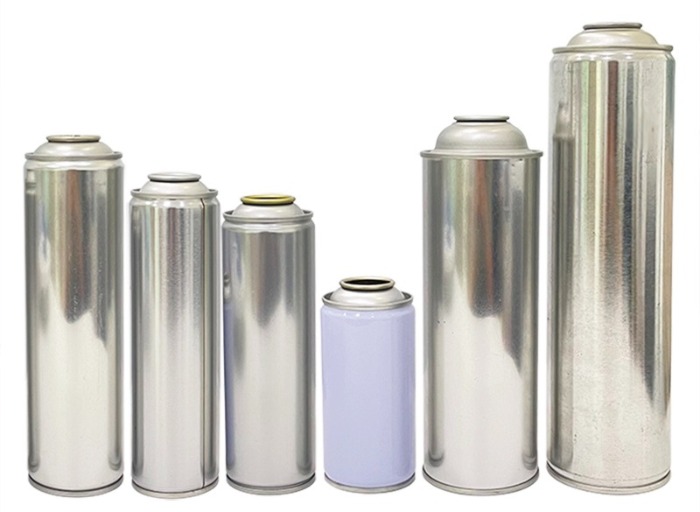
2. Size
The height of the can body, total height, crinkle height, the outer diameter of the aerosol can opening, the inner diameter of the aerosol can opening,the outside dia of the double seam and height of the double seam should all be within the specified deviation range.
Testing: You can learn about the specifications of the aerosol cans you produce and whether they meet the technical requirements for sealing samples
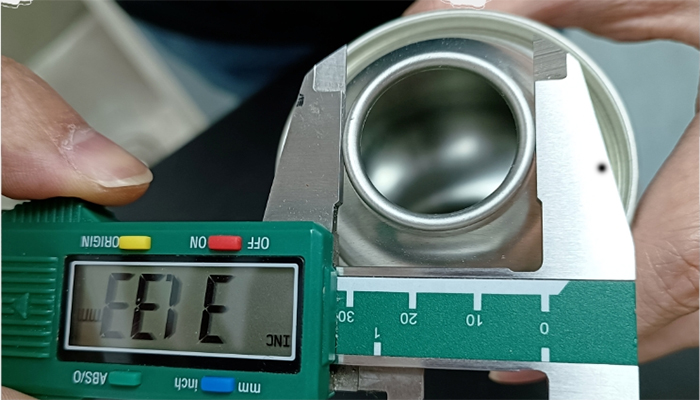
3. Integrity of weld coating
The integrity of weld coating refers to the coverage area of the weld coating and the adhesion performance between the coating and the substrate, used to protect the weld and its surrounding areas from corrosion and environmental damage.
Testing: Integrity testing of weld coating can detect defects in both weld and coating, such as porosity, inclusions, cracks, and other defects inside the weld, or defects such as bubbles, peeling, and pitting on the coating surface. If these defects are not detected and addressed in a timely manner, they may affect the sealing and safety performance of the aerosol can, and even lead to serious accidents such as aerosol can explosions.
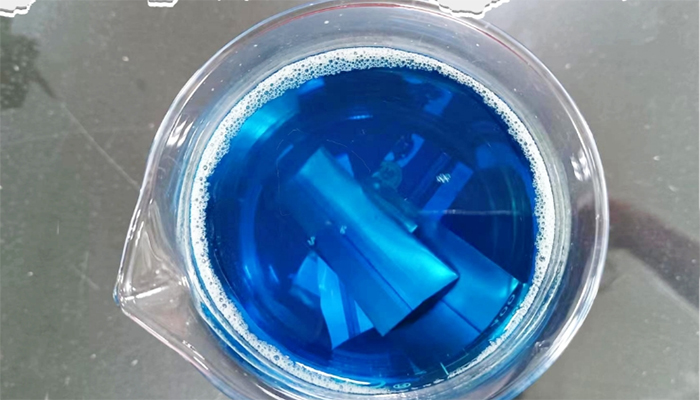
4. Adhesion of inner and outer coatings of aerosol cans
The adhesion between the inner and outer coatings of aerosol cans refers to the adhesion performance between the coating and the substrate, which is an important parameter of coating performance.
Testing: Internal and external coating adhesion testing can ensure that the adhesion performance between the coating and the substrate meets the standard requirements, avoiding the occurrence of coating peeling, cracking, or detachment. This can not only extend the service life of aerosol cans, but also improve their safety and reduce potential hazards.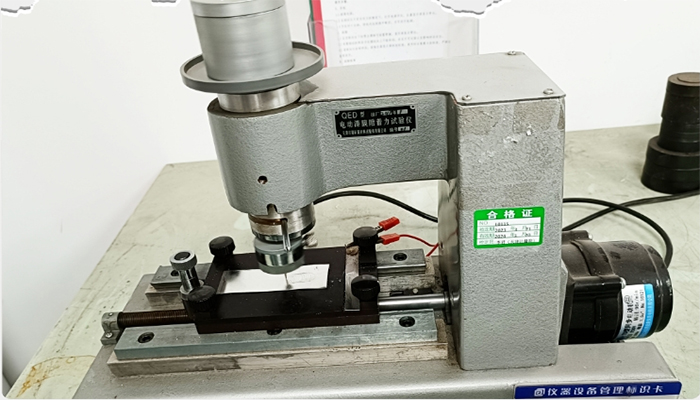
5. Hardness of the outer coating of the aerosol can
The hardness testing of the outer coating is to ensure the wear resistance and scratch resistance of the surface of the aerosol can during use.
Testing: The outer coating hardness test can evaluate the hardness and scratch resistance of the coating, thereby determining the quality and durability of the coating. In addition, the hardness test of the outer coating can also detect quality issues of the coating, such as possible defects such as air bubbles and sagging, which may cause coating detachment or surface damage, thereby affecting the safety performance of the aerosol can.
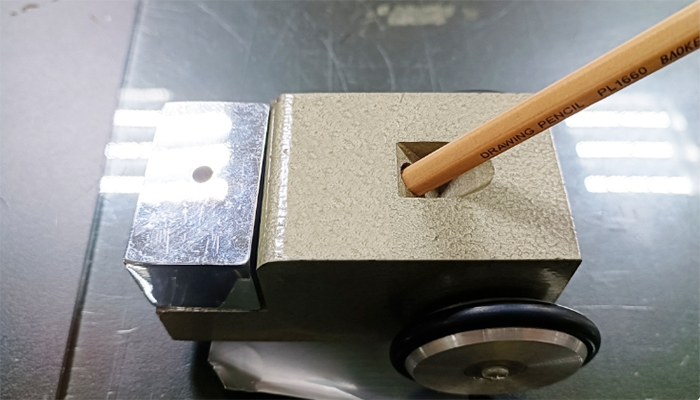
6.Air tightness performance of aerosol cans
Airtightness performance testing refers to determining the airtightness performance of an aerosol can under pressure differences inside and outside the can by testing its sealing performance.
Testing: Aerosol cans need to withstand a certain amount of pressure during use, so their sealing performance has a significant impact on their safety and service life. If the airtightness performance is poor, it may lead to excessive internal pressure or leakage of the aerosol can, thereby causing safety accidents.
7. Deformation pressure
Deformation pressure testing refers to the pressure testing of an aerosol can to determine whether it can withstand a certain amount of pressure deformation without breaking.
Testing: During use, aerosol cans may be affected by external forces such as collision, compression, etc. If the structure of the aerosol can cannot withstand a certain amount of deformation pressure, deformation or rupture may occur, leading to safety accidents.
8. Burst pressure
Burst pressure testing refers to the process of conducting pressure tests on aerosol cans to determine their maximum allowable pressure.
Testing: During the use of aerosol cans, due to changes in pressure and environmental influences, the internal pressure may suddenly increase, leading to serious accidents such as explosions. Therefore, when manufacturing aerosol cans, it is necessary to conduct a burst pressure test to ensure their safety performance within the normal operating pressure range.
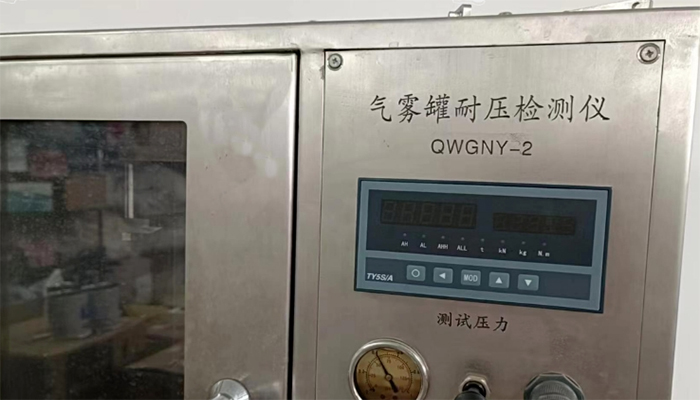
Compatibility and hygiene requirements testing can be conducted based on customer requirements and product properties.